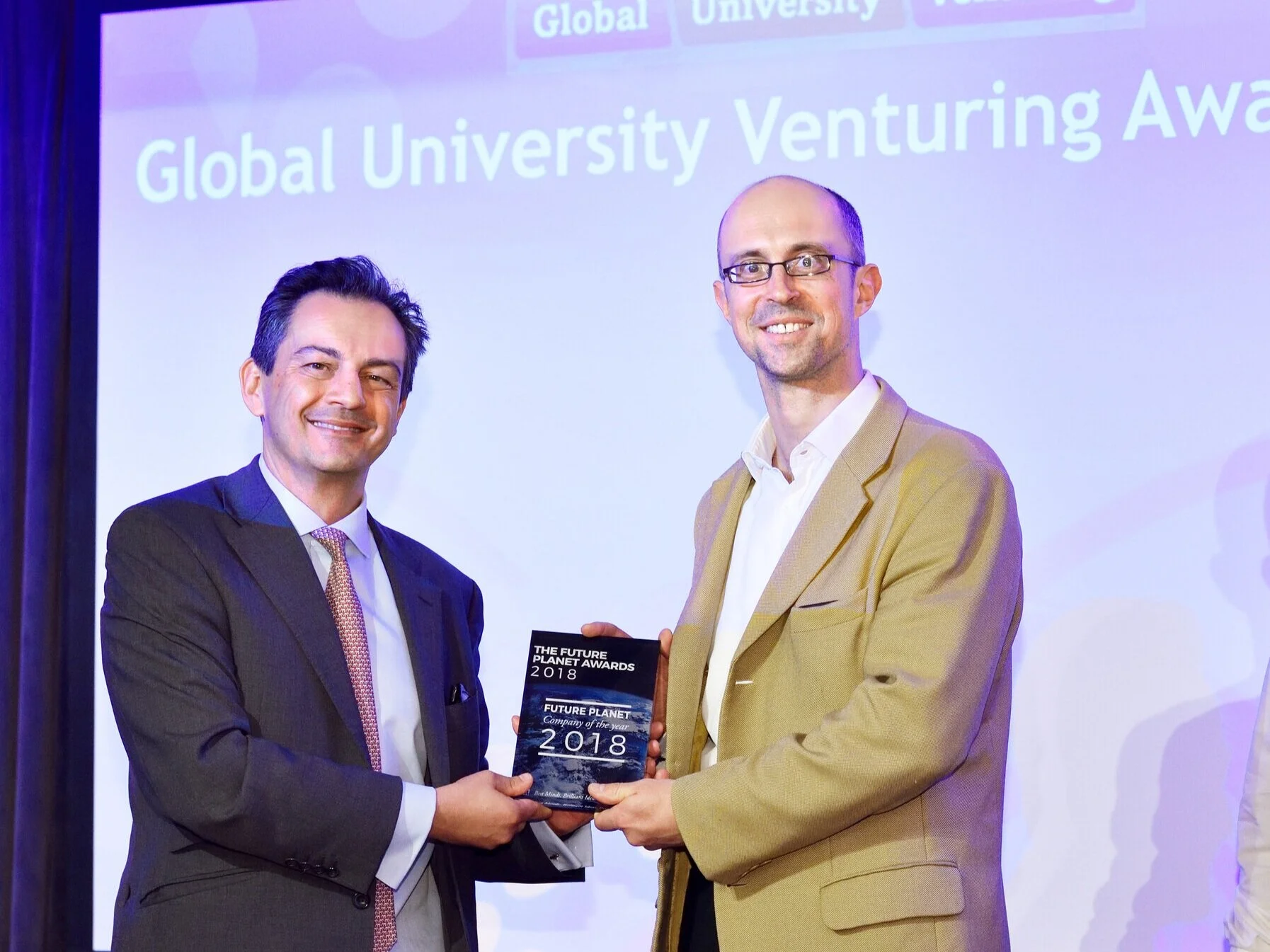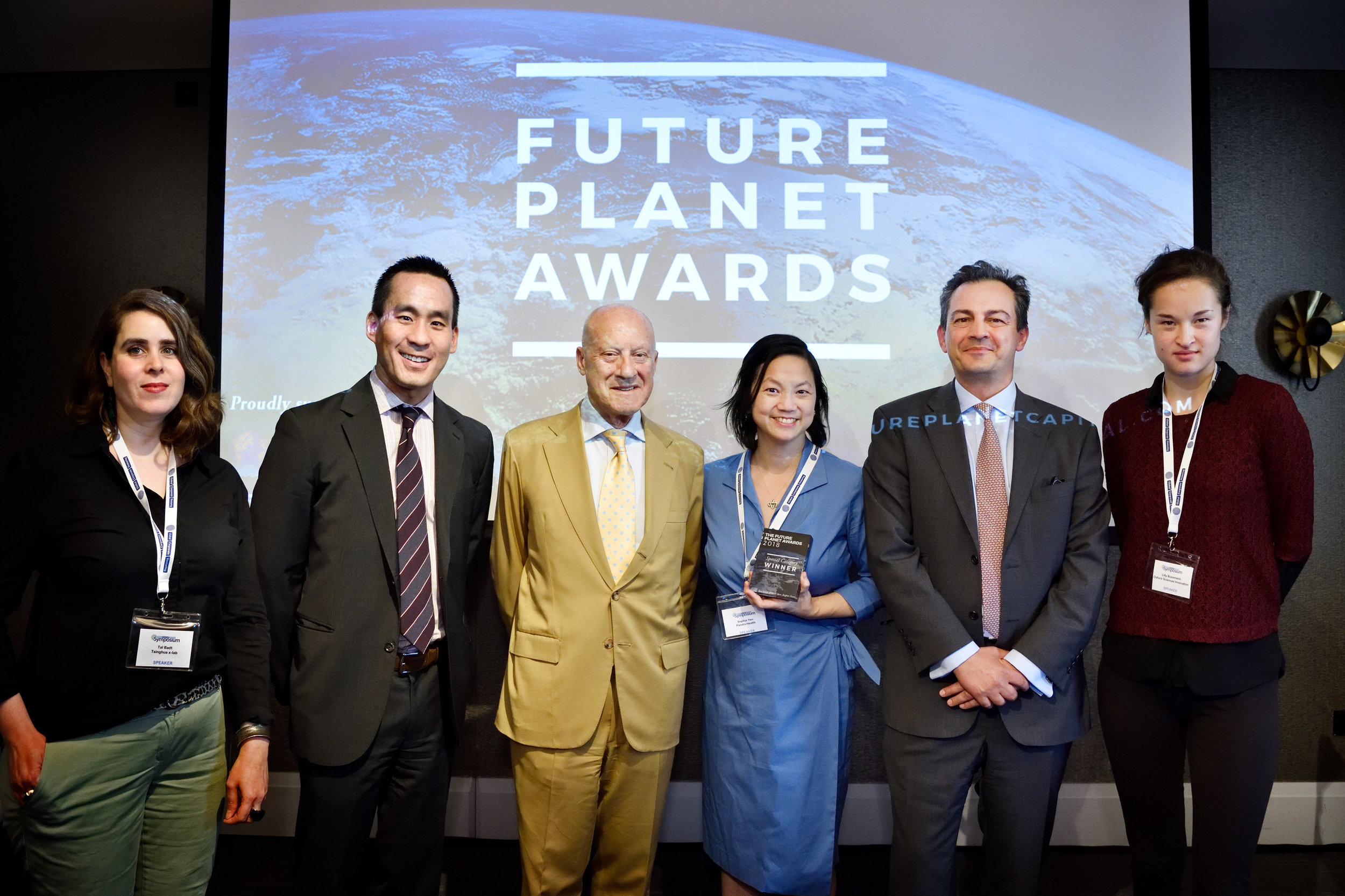This week, we are interviewing Future Planet’s founder and Executive Chairman, Douglas Hansen-Luke. After a long career in Asset Management in the Middle East, Europe, Asia and Africa, Douglas founded Future Planet Capital to meet an unmet need in the market: impact and innovation at scale. We asked him what drove him to start Future Planet, successes to date, and what the future holds.
1. What prompted you to found Future Planet Capital?
Future Planet Capital was founded in 2016 to enable sovereign funds and other large investors to access the innovation coming out of the best universities in the world. Ventures created at the top universities make up a tremendous amount of today’s global economy. The standout examples, of course, are Facebook emerging from Harvard and Google being founded by Stanford grad students. The idea for FPC stemmed from a desire to systematise this process and when we saw a small deal in 2014 between a sovereign wealth fund and Trinity College Dublin, I believed I could do that better!
Future Planet grew out of a desire to build a fund that makes a difference. I wanted to dedicate all my energies to this and leverage my experience with institutional investors to make an impact and a profit.
After conducting in-depth research into whether this was going to be a viable business option, we concluded that there was an unfilled need in the market. Hence, we developed partnerships with the university managers based around the word’s most prolific centres of innovation: Berkeley, Cambridge, Harvard, MIT, Oxford, Tsinghua and the University California System. We then took these partnerships and connected the brightest people to the world’s most prominent investors; the rest was history.
“Future Planet grew out of a desire to build a fund that makes a difference. I wanted to dedicate all my energies to this and leverage my experience with institutional investors to make an impact and a profit.”
2. When did you first start seeing success with the fund?
We started this the fund in a research-based manner and subsequently surveyed twenty sovereign wealth and pension funds, asking these funds to detail what they want to do with their money. We did this because one of the goals of the fund is to be a good manager of people’s money. Hence, a logical step to managing their money well is to understand where they want it invested.
As a result, we attained early success. In our first eighteen months, the fund managed to deploy one hundred million dollars in assets, twenty million for British Local Government Pensions, thirty million sub-advisories for the British Innovation Fund. Fifty million of co-investment from a Sovereign Fund in the Middle East and from one of the world’s largest technology companies.
The initial success was most definitely there. However, success had to be measured on the results of our investments. Three years later, following the initial ten investments made by our fund, we have nine companies still operating and growing and one unicorn. While there was one failure as the company is no longer trading today. We look upon this as a success; the venture industry is high-risk with up to forty per cent of endeavours failing. Our ninety per cent success rate is something we are incredibly proud to have managed. This is absolutely a testament to the innovation arising out of top universities and our investing strategy
On top of our initial successes, we have looked to expand the stream of investments coming into our Fund and portfolio companies. Future Planet has a partnership with Barclay’s Private Bank that allows ultra-high net worth individuals to co-invest with us and likewise with Global Corporate Venturing for business investors and with Seedrs for individuals. This last is very important to us. Venture Capital investing has long been the preserve of the richest among us. Through an online investment opportunity, we are trying to democratise the industry, offering individuals a chance to invest with far smaller amounts of money in a venture that would have previously been financially unattainable.
3. Future Planet has existed for four years, what have you learnt about the industry at this time?
There are three things that I have learned in the time since starting Future Planet. The first point we recognised early in the process, and this has been backed up by research conducted throughout the four years. We saw there would be an opportunity to arbitrage value, in the centres of innovation, for example, venture companies in Shenzhen and San Francisco are highly valued with those on the Amtrak corridor in the US being slightly cheaper and those in the UK cheaper still. The valuations of companies differ not because of the quality of their product but rather their local market size for both customers and investors. As a result, these companies are subject to the supply and demand of their local area, thus changing their value depending on where they are founded. We at Future Planet research the quality of the company and compared this to international competitors. We would invest in companies with potential and help these them to grow into more significant markets. We have had success with this model taking UK companies such as Congenica, Navenio and Oxford Flow and introducing them to the Middle and the Far East.
The second lesson we learnt while developing the fund is that the biggest brand investors, the Silicon Valley venture giants, are followed by the herd. These firms have access to the best founders in centres of innovation and then often sell out at later stages to those who don’t have that access. We invest at the same time as these investors and from the same pool of opportunity – the universities and their eco-systems.
The third lesson follows on from the other, early-stage investment is abundant. Every Government and fund want people to become innovators. The most inefficient part of the market is stage B and C as it is not as flashy; this growth stage, however, is vital company growth. At the earliest angel, seed and Series A stages the technology and commercial opportunity have yet to be proved. By the time they’re at Series B the technology is usually ready and they are on the cusp of commercial traction and are in a position where our network will be able to help them with the next round of growth.
4. What advice would you give to someone wanting to start an impact fund today?
The first and second generation of impact funds focused mostly on the developing world and real estate in the developed world, such as social housing projects and infrastructure. My view is that the biggest challenges facing the world are far more focused on technology; it is this combined with government policy that is going to make a genuine difference. Climate change is going to impact billions of people. It is a technology that may be able to turn the tide. It is technology medicine that will make a difference in people’s health outcomes once again; this can have an impact on a large portion of the world’s population. Unless you are healthy, it is very challenging for you to do anything else. Once the health is sorted, we can then look at education. Education technology is making learning far more accessible to people, particularly in the K1-K12 age group.
I believe that the impact and innovation move together. There is not enough money focused on connecting these two things; individually, they are both quite niche. But, put these together there are substantial addressable markets. When we view our deals, based on the sustainable development goals, there is often a total addressable market of over one trillion dollars or challenges and solutions that will make things better for over 1 billion lives. COVID or climate change, for example, has undoubtedly changed the lives of all seven billion of us. We could even look at the human error behind car crashes which cause over a million deaths. The vast majority of these would be avoided with autonomous vehicles. We are operating in a unique space and find that very few people are working on the same type of ventures. We encourage new entrants into this area as there is more than enough room to support more than one fund manager. Knowing one’s eco-system can bring particularly strong results, so we are particularly open to local partnerships in Canada, China and India.
5. Where do you see Future Planet and yourself in five years?
Future Planet is one of the most exciting and fulfilling things I have done in my professional career. There is a very significant impact and profit opportunity, and I would be disappointed if, in five years, Future Planet was not managing at least five hundred million dollars of assets. Much more than that I want us to have had first look at the next Google or Facebook but as companies that make a real difference to climate change, education, health, security or sustainable growth. We are already invested in companies that are creating vaccines for some of the world’s most challenging diseases. We want to continue investing in companies that are changing the world. For myself, this would be adequate fulfilment of a life’s work.
I can’t imagine not being involved in Future Planet but over time our team will grow and talent needs time and space to breathe. To allow that in years to come, I plan to be fully supportive of the internal network and external early-stage investment partners we have built so far. Then I would love to use the experience gained bringing academia and private capital together to do the same with private finance, technology and the world of public policy where much work remains to be done.







